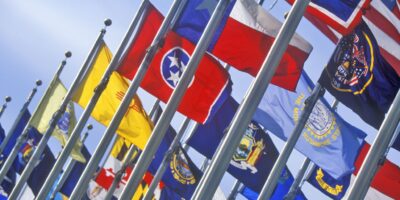Why Politicians Focus on Trivia in the Midst of Disaster

Why would a city, short of tax money in a crisis, pay an enormous sum to disable a public space from being used by the citizens who paid for it? Because the city can do nothing about the virus.
In a crisis, we often worry about the wrong things. You’ve probably heard:
- The municipal government of San Clemente, CA trucked in 37 tons of sand, at a cost of at least $100,000 when you count removal, to forcibly close a skateboard park that was being used by no more than a few dozen people per day.
- Governor Gretchen Whitmer of Michigan required that all stores over 50,000 sq. feet close their garden centers, eliminating access to plants, seeds, and other supplies. The Governor admonished: “If you’re not buying food or medicine or other essential items, you should not be going to the store.”
- The mayor of Greenville, MS outlawed public gatherings, including religious ceremonies, and sent city police to issue $500 tickets to worshippers who were sitting in the parking lot, windows closed, listening to a “drive-in” sermon on Easter. The order was later reversed, but the mayor remains unapologetic.
- In Rhode Island, National Guard troops have been used at roadblocks, and in some cases for actual house-to-house searches, to find people who have “escaped” from New York to second homes or houses of relatives in the Ocean State.
- A U.S. Senator, my own North Carolina friend Thom Tillis, introduced legislation to make price-gouging a violation of federal law.
You likely know of other examples; there are new restrictions and crackdowns every day. What is going on?
In his first inaugural address, Franklin D. Roosevelt inveighed against panic:
This great Nation will endure as it has endured, will revive and will prosper. So, first of all, let me assert my firm belief that the only thing we have to fear is fear itself—nameless, unreasoning, unjustified terror which paralyzes needed efforts to convert retreat into advance. In every dark hour of our national life a leadership of frankness and vigor has met with that understanding and support of the people themselves which is essential to victory. I am convinced that you will again give that support to leadership in these critical days. (emphasis added).
There are many reasons why panic, and “fear itself,” are problems in human society. For example, air travel is incredibly safe, far safer than almost any other form of transport. But people who read about an airplane crash that was far away, or long ago, panic at the thought of flying this plane, today. We are “built” to overestimate small risks of really bad things.
Government responds by giving us what we want. The “security theater” ordeal of passing through airport screening seems unpopular, but in fact many people have been comforted by being abused. People just shake their head and say, “Well, you can’t be too careful.”
The problem is that “we” can absolutely be too careful. The optimal number of deaths in any mass activity that has substantial economic value is greater than zero. We could reduce traffic deaths by outlawing driving, but we tolerate the (reasonable) risks of driving because of the many benefits of decentralized personal mobility.
But I think there is something else going on, something more than risk aversion. Psychologists call it “displacement,” where something we are worried about but have no control over gets replaced by something we imagine that we can control. For individuals, this might take the form of hoarding: you can’t be sure that you won’t get the coronavirus, but by golly you can have 7 cases of toilet paper in the garage! Will the toilet paper help in any way if you get sick? Of course not. But there is one fewer thing to worry about if you can hoard some necessities.
At the level of public debate and government action, displacement is called “bike-shedding.” The general form of this phenomenon is C. Northcote Parkinson’s “Law of Triviality”:
On any agenda or in public debate, the length of time spent on an item will be in inverse proportion to its substantive importance or monetary significance.
If you’ve spent time in public meetings, you know that this is one of those “it’s funny because it’s true!” observations. But when important matters are being decided, the sad kills the funny.
The reason this cashes out as “bike-shedding” is the example Parkinson uses to illustrate the principle. The example imagines a new nuclear power plant, an enormous and complex undertaking with many thorny problems to be solved. The difficulty is that considerable expertise and knowledge are required to play a sensible role in these discussions, so people are unhappy. Further, there is a sense of danger in these considerations: what if we make a mistake? What if something goes wrong? This is important!
Parkinson presents the bike-shed discussion as a dramatic dialogue. It is too long to reproduce here, but it is both hilarious and deeply insightful of our current situation. The short version is that a long meeting considers many items in sequence. One is the nuclear reactor, for $10,000,000, and a debate by experts is largely incomprehensible to the participants. The next agenda item is the bike shed for organization staff, with a budget of $2,350 for building and painting. They may end up arguing longest about the color of the paint, in fact.
The “nuclear reactor” item is discussed briefly; the bike-shed is discussed and debated at length. The reactor budget of $10,000,000 is simply accepted (though it seems odd that such a complex project would work out to such a round sum), but the $2,350 for the bike-shed is questioned in every particular, in part because it is such a specific number.
Once you understand the “bike-shedding” problem, where trivia displaces important issues as a way of showing how much we care about the important issues we aren’t actually addressing, many puzzles of public policy are solved. Why would a city, short of tax money in a crisis, pay an enormous sum to disable a public space from being used by the citizens who paid for it? Because the city can do nothing about the virus.
Why send police after a perfectly safe public “gathering” of people sitting separately in cars for a church service? Because the group of people is observable, and controllable; the mayor is showing how much he cares for citizens, by harassing them. Why send troops into private homes to search for U.S. citizens legally traveling within the country? Because we can all see “New York: Empire State” license plates; we can’t see the virus, and that worries us.
Why would a sensible, conservative Senator—every time I see him, he tells me, “I’m really a libertarian!”—ignore both basic economics and the 10th Amendment reserving police power to the states?
Because the problem of scarcity is hard to solve, and hard even to explain. High prices are easily visible, and the state has guys with guns. Send the guys with guns after the people trying to sell stuff that others need and want to buy.
What color is your bike shed?
NOTE: An earlier version of this article called Rhode Island the Granite State. That is now fixed. You just read a complicated article, with an extended argument. But you are about to make a comment that “New Hampshire is the Granite State; Rhode Island is the OCEAN State.” This is as good an example of bikeshedding as the author could think of, as an illustration. You’re welcome.











